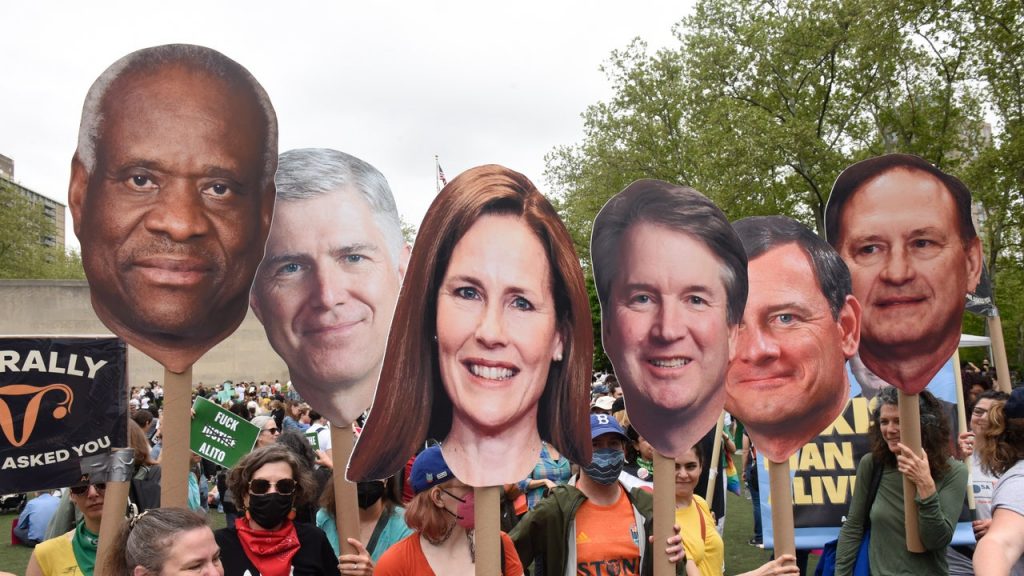
What You Need to Know About the Supreme Court’s Roe Decision
This ruling does not come as a surprise, given reports that show that former president Donald Trump committed to pushing anti-choice justices onto the court in exchange for pro-life groups mobilizing their base in support of his presidency.
What do the dissenting justices say?
Unusually, the three liberal justices shared joint authorship of the dissent. With the prior cases like Casey and Roe, the dissenting justices wrote, “the Court struck a balance, as it often does when values and goals compete.”
“Today, the Court discards that balance,” the dissent continues. “It says that from the very moment of fertilization, a woman has no rights to speak of.” The justices dig into the variety of “draconian restrictions” that a pregnant person will now be forced into giving birth, including rape and incest, even at the risk of the life of the pregnant person; they underscore how these restrictions will unduly impact poor people. “Across a vast array of circumstances, a State will be able to impose its moral choice on a woman and coerce her to give birth to a child,” the dissent reads.
“With sorrow — for this Court, but more, for the many millions of American women who have today lost a fundamental constitutional protection — we dissent,” the dissent concludes.
What does this decision mean for other Supreme Court precedents?
As Namrata Verghese wrote in a recent Teen Vogue oped, the Roe decision puts us in “uncharted waters.” Other rulings that protect contraception, same-sex marriage, and same-sex relationships are now at risk of being overturned, too, as Thomas made clear in a concurring opinion.
Thomas’s opinion explicitly calls on the court to reconsider the precedents set by other landmark cases involving the 14th Amendment right to privacy, which was the protection that once justified Roe. The conservative justice specifically cites Griswold v. Connecticut (which guaranteed the right to contraception), Lawrence v. Texas (the right to same-sex intimacy) and Obergefell v. Hodges (the right to same-sex marriage).
The liberal justices on the court seem to think the rest of the court is planning to move forward with this larger-scale rollback of civil liberties. “No one should be confident that the majority is done with its work,” they write in their dissent. “To the contrary, the Court has linked [the right to an abortion] for decades to other settled freedoms involving bodily integrity, familial relationships, and procreation.”
How are abortion rights groups and politicians responding?
Rep. Alexandria Ocasio-Cortez joined throngs of protesters outside the Supreme Court, calling for people to get “into the streets” and chanting that the decision is “illegitimate.”